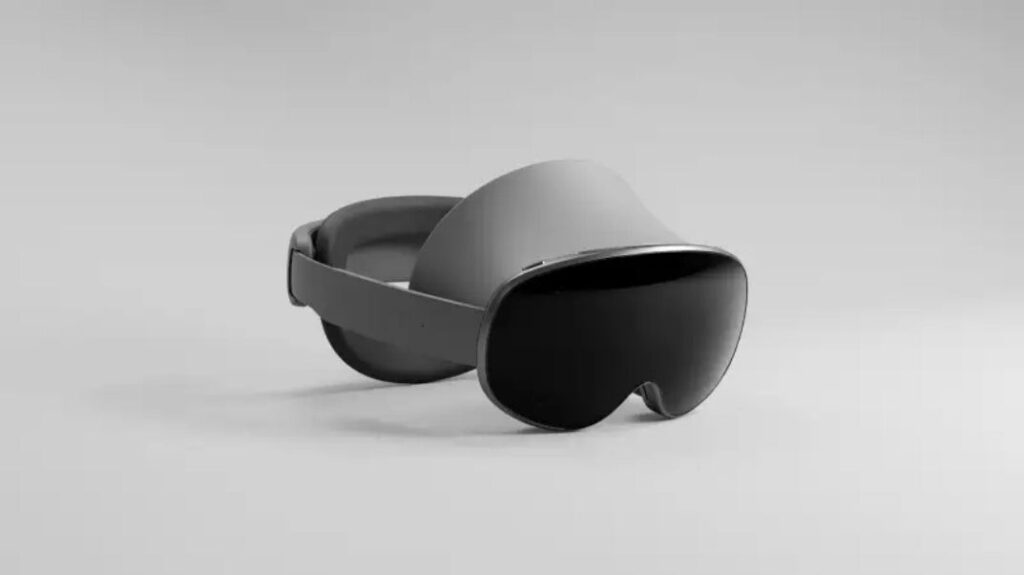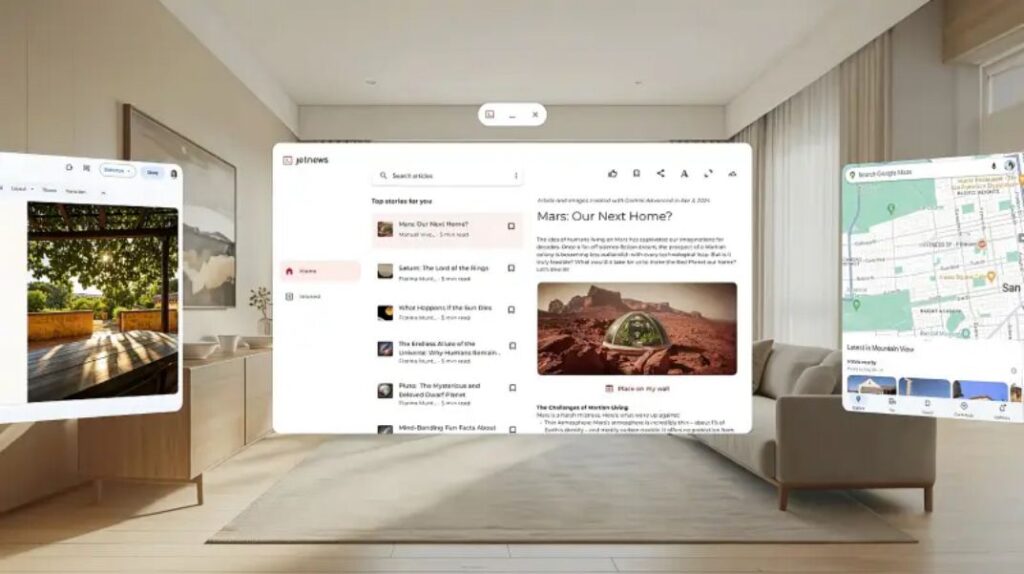After many rumors, Google has officially announced Android XR, its new operating system for mixed reality glasses. The software was developed in collaboration with Samsung and will debut in 2025 with a headset from the South Korean brand.
Please follow us on Facebook and Twitter.
In simple terms, Android XR is Google’s answer to visionOS, the operating system for the Apple Vision Pro, and Horizon OS, the operating system for the Meta Quest.
The software will be compatible with all Android mobile and tablet apps currently available on the Play Store. Additionally, it will offer new experiences specifically designed for virtual reality and augmented reality devices.
Early demos of Android XR show that its software implementation is quite similar to Apple’s visionOS. This means mixed reality headset users will be able to interact with an interface overlaid on the world around them. Floating app windows can be resized and repositioned, and users who prefer a more immersive experience can choose different landscapes as backgrounds.
What sets the new software apart is its integration with Google services. Android XR aims to leverage Gemini not only for basic tasks like asking for directions or performing web searches, but also for more complex actions, such as repositioning app windows when the interface becomes crowded. Access to popular apps like YouTube, Gmail, Google Drive, and Circle to Search is also a significant advantage.
Android XR will debut in 2025 with a Samsung mixed reality headset.

While Google aims to make Android XR the foundation for a new ecosystem of mixed-reality headsets and smart glasses, Samsung will be the first to bring it to market. Samsung is currently working on a headset called Project Moohan, which combines features of the Apple Vision Pro and the now-defunct Meta Quest Pro.
The Korean company claims its device will feature “cutting-edge displays, passthrough, and multimodal natural input methods,” but has not yet provided specific details about its technical features.
In addition to its partnership with Samsung, Google announced that it is opening a path for companies like Sony, XREAL, and Lynx, which use Qualcomm technologies, to create their own devices running Android XR.

Google has also released the first preview version of the SDK for its new operating system, allowing app developers to start optimizing their apps for the platform or creating new experiences specifically for Android XR. The software already supports tools like Unity, Android Studio, Jetpack Compose, OpenXR, and ARCore.
In addition to the mixed reality headsets, Google plans to equip its Project Astra-powered smart glasses with Android XR. The first prototype of the wearable will begin testing with a small group of users, aimed at refining interactions with the Gemini 2.0-powered assistant. However, the company has not yet shared a timeline for when a device in this form factor could be launched or which manufacturers will be the first to release it.





